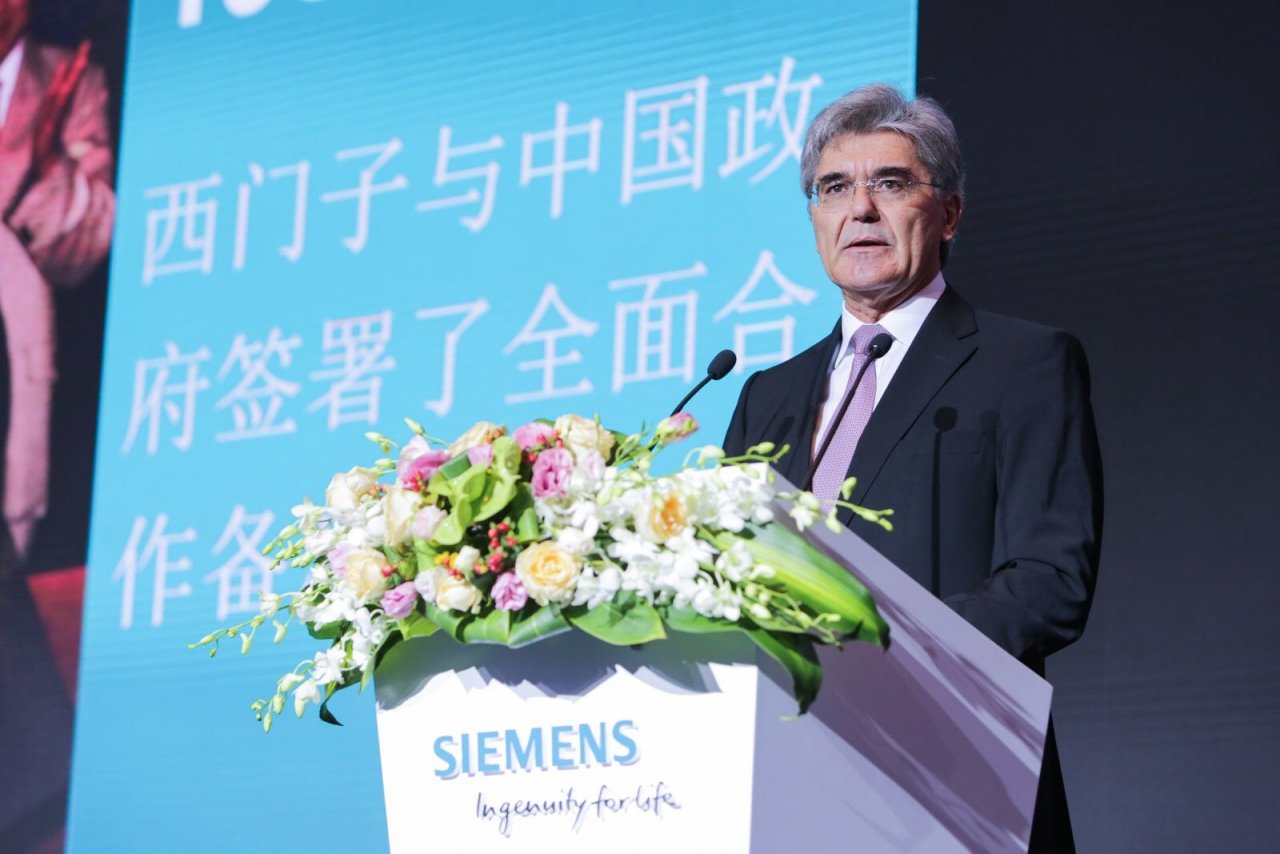Thailand: Siemens embraces Belt and Road opportunities in China deals
SIEMENS yesterday expressed its long-term commitment to China’s Belt and Road Initiative (BRI), embracing a scheme that the German company says can potentially change the global order in trade and economics.
The company, which bills itself as the world’s leading infrastructure company and supplier of engineering technology products and services, yesterday signed more than 10 agreements with Chinese partners in support of opportunities arising from the BRI during the Belt and Road International Summit held by Siemens in Beijing.
The forum attracted more than 1,000 leaders and executive representatives from governments, enterprises, investment firms, financing institutions and think tanks from more than 30 countries and territories.
The cooperation agreeements were signed with leading Chinese enterprises, such as China Gezhouba Group Corporation International Engineering Co Ltd, Guangdong Yuedian Group Co Ltd, China National Chemical Engineering Group Corporation Ltd (CNCEC), China Railway Construction Corporation (International) Ltd, China Civil Engineering Construction Corporation (CCECC), and China Resources Cement Holdings Ltd. They cover power generation, energy management, building technology and intelligent manufacturing, and aim to tap the market potential in countries and regions such as Indonesia, the Philippines, Nigeria and Mozambique, as well as South America.
Siemens in March set up a dedicated Belt and Road office in Beijing for enhancing global cooperation. The move will further intensify company-wide efforts to continue teaming up with global partners and jointly exploring business opportunities emerging from the BRI. Carsten Hasbach, head of strategy and business development in Russia, is leading the new BRI office in Beijing, with his main task to facilitate and strengthen the interaction with different stakeholders.
As part of the company’s global taskforce, the Belt and Road office will become Siemens’ global hub responsible for executing the company’s BRI business strategy, integrating internal and external resources to best support the initiative, strengthening interactions with multiple stakeholders, and creating collaboration opportunities that lead to multiple benefits.
Joe Kaeser, president and CEO of Siemens AG, said that as a long-term and well-established partner of China and its industries, Siemens supports the call of the BRI and is taking another solid step forward on a larger scale and with a wider scope.
“The Belt and Road Initiative has the strong potential to change the world trade and economic orders – with the investment of about one trillion euros, more than 90 countries involved and growing with the BRI. About 70 per cent of the world population will be influenced by the initiative,” said Kaeser.
Kaeser said that Siemens operations in China became its biggest outside Europe. Posting total revenue of 7.2 billion euros in fiscal 2017, the Siemens operations in China employ about 32,000, with 4,500 in research and development (R&D) and engineering staff, 12,000 patent applications, and 21 R&D hubs. Chengdu becomes the company’s first digital factory outside Germany.
Cedrik Neike, member of the managing board of Siemens AG, said that Siemens is among the first global companies to partner with Chinese EPCs (engineering, procurement and construction) in their “go global” endeavour. “The BRI is all about infrastructure and bridge-building. It is about bridges connecting societies, economies and cultures but also about bridges between the physical infrastructure and the digital world,” he said.
Lothar Herrmann, CEO of Siemens Greater China, said that by connecting multiple stakeholders of BRI, by providing innovative and digital technologies and by working closely together with its Chinese partners, Siemens continues to support a successful, open and fair international collaboration.
Source: http://www.nationmultimedia.com/detail/Corporate/30347147


 English
English




